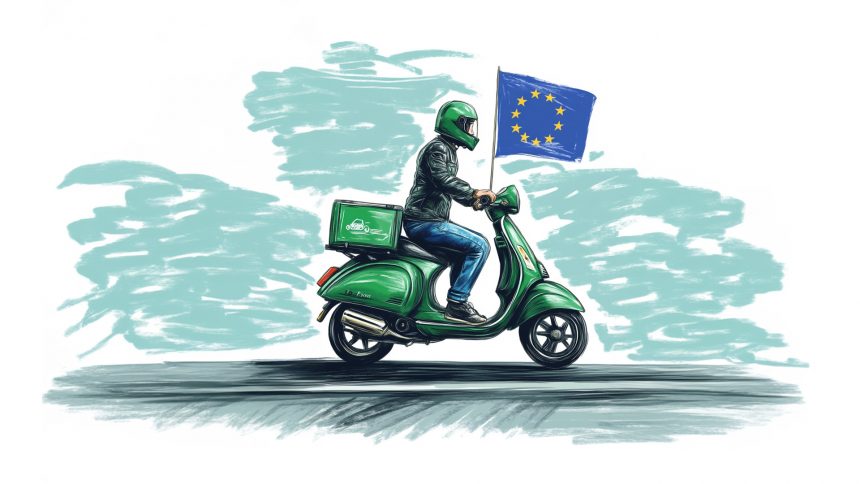The ride-hailing and food delivery sectors are undergoing significant upheaval following the government’s recent decision to refuse new work permits and renewals for third-country nationals (TCNs). This policy aims to address perceived labour market saturation in the sector.
The Maltese government has justified the refusal of work permits by citing a saturation in the market for cab drivers and couriers. Officials argue that the current supply of labour in these sectors meets existing demand, negating the need for additional TCN workers. But can a government do so under international law?
Under the General Agreement on Trade in Services (GATS), which is in an agreement falling under the World Trade Organization (WTO), Malta has specific commitments regarding service trade and the treatment of foreign workers. GATS requires member states to provide market access and national treatment to service suppliers, including TCN workers, in sectors where they have made specific commitments. However, countries may impose restrictions like Economic Needs Tests (ENTs). These allow countries to limit the entry of foreign workers based on domestic labour market conditions. Therefore, unless the EU has an international agreement in place with the country this TCN is hailing from, the government is well within its rights to impose such a limit.
Amid the focus on TCN work permit rejections, the ride-hailing and courier platforms have expressed significant concern over the Maltese government’s decision to refuse new work permits and renewals for third-country nationals (TCNs), reporting a 20% reduction in their driver workforce, which has led to increased prices and longer waiting times for customers. However, it is somewhat baffling how this shortage seems to have happened overnight. Have these platforms been operating with workers who did not have a permit, or is this an excuse to put pressure on the government to reverse the policy? Bolt has released a statement explaining that this was not the case.
In all this, these companies have overlooked a crucial aspect. The new policy does not preclude them from hiring Maltese and EU nationals. If they want their supply to return at their previous rate they could do so by employing from these regions. The decision not to do so suggests a preference for the flexibility and lower costs associated with employing TCNs, which have often been a point of criticism for these platforms, which have often been accused of exploitation.
This policy also provides a valuable lesson on how the labour market works, particularly the dynamics of supply and demand. When there is a shortage of available workers, companies may need to offer higher wages to attract employees. This creates an opportunity for wage growth in the ride-hailing and delivery sectors. As companies are now forced to attract local and EU workers, we can expect more competitive wages in the industry, making these jobs more appealing. Previously, the availability of low-paid workers from third countries gave companies little incentive to modernize their operations or increase wages to attract local or EU workers. This meant that businesses could rely on cheaper labour without needing to improve pay or working conditions. Also it will mean that these services will be more expensive even if there is no foul play from the business side as cost would increase for operations.
This situation is not unique to the ride-hailing and delivery sectors; it can also apply to other industries. For the first time, Malta is experiencing almost full employment, which means that most people who want to work have jobs. This scarcity of available workers has contributed to a rise in the average salaries for full-time employees. In fact, wages have increased by 33% since 2014 in Malta, against the 22% in the EU.
Some can argue that wages could have increased even more if the availability of foreign labour had been further limited. Encouraging businesses to hire from the EU rather than relying on workers from third countries, who often accept lower wages, could lead to even higher salaries in the labour market. EU workers typically have higher wage demands, which could drive up wages further. On the flip side, this may mean that services are more expensive or maybe there is less supply for goods and services, therefore one must find the right balance. Where the right balance is is often subjective.
However, limiting foreign labour availability carries certain risks, such as disruptions in service delivery and reduced productivity. This is why such measures should be carefully targeted, focusing on non-essential services where disruptions would have less impact on daily life and the economy.

Leave a Reply